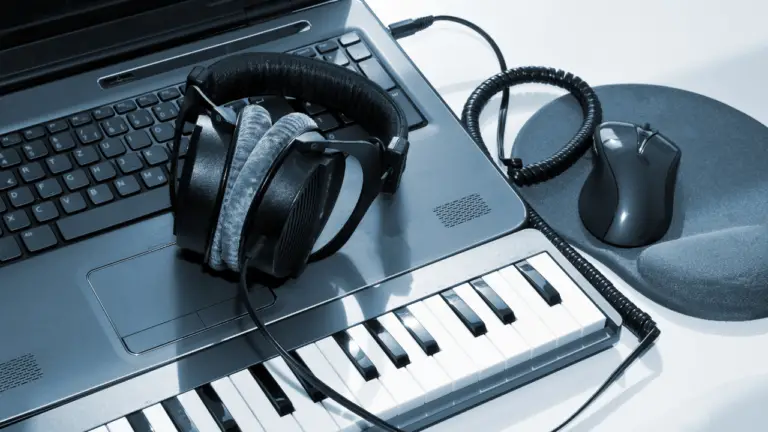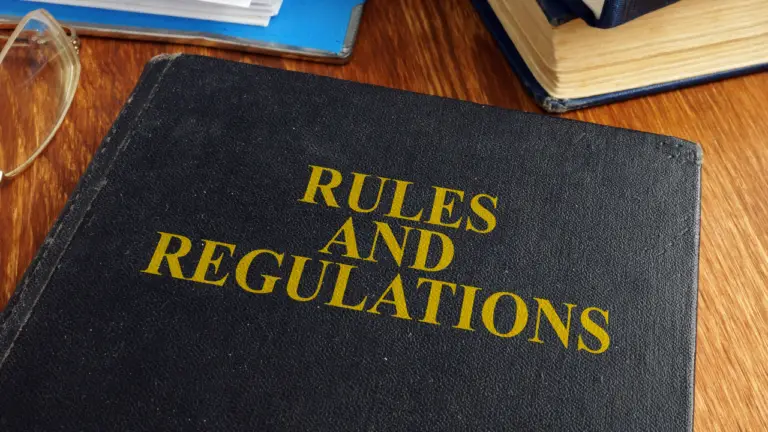The Downsides of Being a Music Producer
Despite the amazing and incredible benefits of being a music producer, it’s not all sunshine and rainbows. Music production is a hard job, and there are a wide range of downsides that can become real barriers to getting the rewards.
Promising producers don’t quit because the job is always amazing and great. They quit because of the downsides.
In this article, we’ll explore what makes music production a hard and, sometimes, frustrating journey.
The Cons of Being a Producer
Just like the upsides and benefits, there are many downsides or ‘cons’ of being a music producer. Some of these downsides include (but aren’t limited to):
- Lack of income
- Can get expensive (buying gear, promoting oneself etc)
- Steep learning curve
- Frustration from lacking inspiration
- Being judged for your work
- High pressure of success
By no means is this an exhaustive list. Music production is a hard job, and we could spend hours listing reasons why you shouldn’t bother getting into it (just as we could spend hours listing reasons why you should, too!).
At the end of the day, it’s up to you as an individual to decide whether the pros outweigh the cons, or vice versa. Is it worth sacrificing a few things, and going through some tough experiences, to reap the rewards and benefits on the other side? It’s a deal you have to decide whether to take or leave.
The rest of this article will explore some of the downsides mentioned above, and how they affect producers.
Some of these may cause a promising producer to give up on their dreams entirely. Some may cause a producer to become even more determined to succeed. And some may not affect a person at all. It is really down to the individual, but I’m willing to bet that most of these problems are faced by most, if not all, producers at some point in their careers.

Starving Artists
The dream of many a producer is to see his music in the charts, travel around the world, and make endless amounts of money, while spending his ‘working’ hours doing what he loves for a living.
Unfortunately, this is not the case for 99% of people.
It’s fine for the big hitters like David Guetta and Martin Garrix. They have no shortage of income and opportunities. But for the vast majority of budding producers, they’re lucky to make any money from their music at all.
The music industry is notorious for being very difficult to make a living in. We’ve all heard of the ‘starving artist’ – the musician who spends all his money on fancy gear and instruments, but has nothing coming in to feed himself and his family. Producers are not an exception to this.
The truth is this: just producing music (on it’s own) is not enough to earn a living. Streams pay mere pennies, and good luck trying to sell physical copies in the digital age.
Even the two giants I mentioned before don’t rely solely on producing – they have multiple streams of income, such as DJ sets and owning record labels.
This is why becoming a music producer can be such a difficult thing to achieve. You not only have to learn how to produce – you also have to learn business. You have to learn how to market yourself, and you have to learn how to earn income outside of a normal 9-5 job. If a producer doesn’t do this, he will become the ‘starving artist’.
These are two separate concepts altogether; and it’s easy to see how someone could enter the music industry, thinking it’s all about being creative and expressive, and then end up broke and overwhelmed.

No Such Thing As A ‘Free Lunch’
Laptops. Plugins. DAWs. Instruments. Vocalists. They all cost money.
If a producer want to create professional-quality music, they have to invest. And sometimes, these investments can get costly.
The first thing a producer needs is a computer, and computers aren’t exactly ‘cheap’ (unless you want a broken netbook from 2007, of course). A PC for music production needs to have a strong multi-core CPU, and the more powerful, the more expensive.
Then comes the DAW. There are many different options here, such as FL Studio, Ableton, Logic Pro, and many more. But whatever someone chooses, a good DAW with good features is probably going to cost hundreds.
Then there’s plugins. The world of plugins is vast, unconquerable, and expensive. Yes, there are free plugins, but the vast majority of plugins are going to cost a pretty penny. And even if they are cheap, most producers don’t just buy one plugin; they buy many separate plugins. The cost adds up over time.
An optional expense is physical instruments, such as a guitar or keyboard. This isn’t needed, but if a producer wants them, the price is high.
Finally, you have the cost of hiring vocalists. They typically charge in the range of a few hundred to a couple thousand; so while the price does vary, it varies in a very high range.
Add all these costs together, and you get an extremely expensive hobby that can cost thousands.

No One Likes My Music!
The downsides of being a music producer aren’t limited to the financial expenses. It can take a toll on mental health, too.
When you’re a creative, you put your heart and soul into a project. You spend hours, days, weeks, and maybe even months, polishing and perfecting that piece of art, down to the nitty gritty detail. And then, when you’re ready, you finally release that piece of yourself into the world, for other people to judge.
When other people judge, they sometimes criticise. And when they criticise, they sometimes insult and hate.
It’s really hard not to take criticism personally as a creator. After all, your work is ‘technically’ a part of you. It is an expression of what you’re feeling. It’s a way for you to connect with others on an emotional level.
It’s not only criticism, too. There’s something arguably even worse than people judging your music: when people don’t care about it at all.
You spend hours upon hours of your time, and effort upon effort of your energy, and in the end, no one even listens. You have 5 plays on your track, and 4 of them are from you.
That can be the most incredibly demotivating thing in the world.
It can lead to anxiety. “What if nobody likes me?”.
Or it can lead to depression. “I’ll never make it. I’m not good enough”.
There’s a certain level of stress that comes with being a producer, and not everybody can handle that stress.

The Many Pressures of Success
Most people are anxious about failure. They ask themselves “what if I never succeed, and I wasted my time?”.
But few people talk about the pressures and responsibilities that come with success. Nobody ever seems to ask “what if I succeed and I can’t handle it?”.
In fact, many people do succeed, and can’t handle it. This can manifest in a variety of ways.
Firstly, success can get to people’s heads. It can make somebody arrogant and full of themselves, and they may walk around acting as if they are better than they really are. They might become a mean, nasty person. Or they might start spending more money than they really need to, just to show off. Pride is a real danger for those who happen to succeed in their craft.
Secondly, success comes with lofty responsibilities. It’s a great feeling when your track hits the charts. But after that initial high ends, the pressure comes. Now, people are expecting things from you. You MUST deliver, or you’ll be seen as a ‘fluke’, a ‘one-hit wonder’. It’s fine succeeding once, but can you keep doing it, continuously, over a long period of time?
Finally, success means that you are now the centre of attention. For some people, this might be great. They might relish the fact that everyone is now hanging on their every word. But for others, this could be the most anxiety-inducing situation possible. All eyes are now on you. Everything you do will be judged and scrutinised, to the tiniest detail. Can a person handle that? Some may, and others may not.
The point is, success comes with a price. That price is high pressure and expectations. Not everyone can handle the stresses of success.






